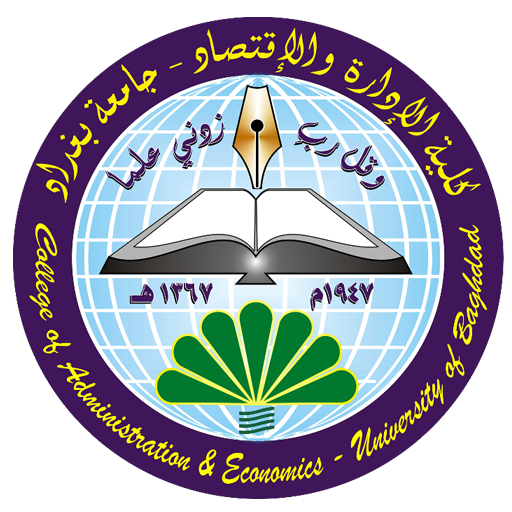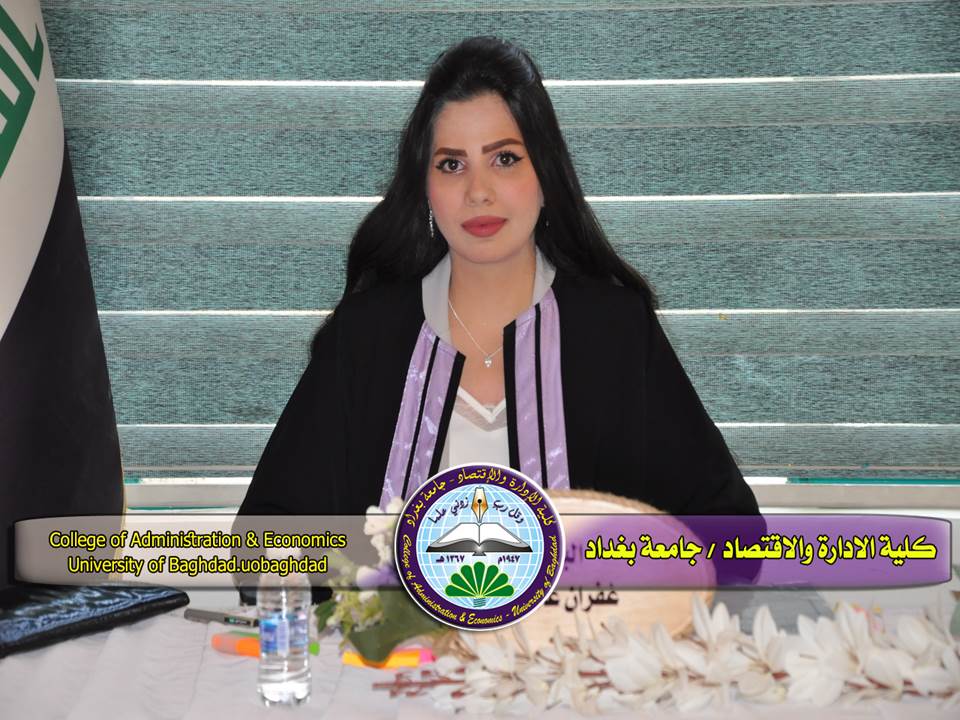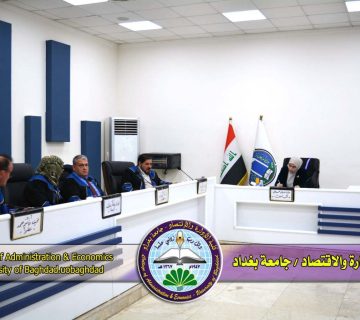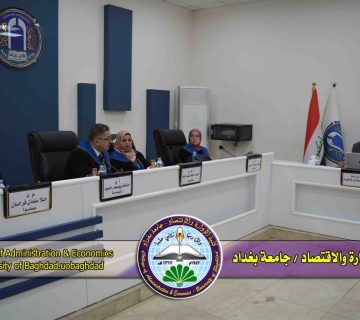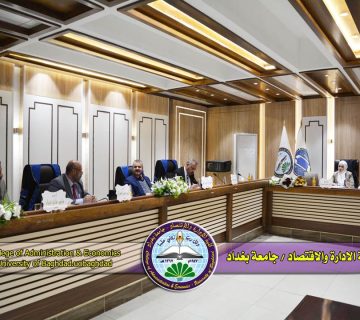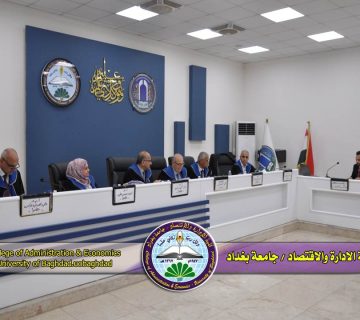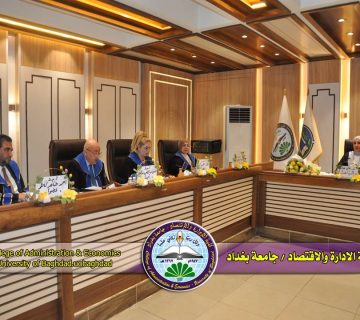The College of Administration and Economics at the University of Baghdad discussed a master’s thesis in field of study accounting by the student (Ghufran Alaa Jabbar) and tagged with (The effect of time constraint in the practice of professional scepticism and its reflection on the quality of the auditor’s performance in Iraq ) , Under supervision of ( Prof Dr. Abbas Hamid Yahya)
Auditors in Iraq are exposed to time pressures compared to the size of the work of the economic unit under audit, due to the importance of the estimated budget for time because it is used as a basis for estimating the fees of auditing services and the cost of their performance, determining the completion time for the auditor and evaluating his performance, and given the increasing interest in the quality of the auditor’s performance from writers, researchers and organizers of the auditing profession. The matter necessitated a statement of the extent to which the auditor faced a problem of time constraint and its impact on all stages of the audit, because of its significant impact on the exercise of professional scepticism, the success of the audit process, and the discovery of errors and material misrepresentations contained in the financial statements to give the financial community confidence in them. The problem of the research is the lack of time specified for the auditor to exercise professional doubt when performing the auditing process, which is reflected negatively on the quality of his performance. The research aims to shed light on the time constraint and its importance as a determinant in the work of the auditor, clarify the concept and importance of professional scepticism in the work of auditing accounts, and indicate the effect of the time constraint on the practice of professional scepticism and its reflection on the quality of the auditor’s performance. To achieve the objectives of the research, the researcher prepared a questionnaire according to the five-point Likert scale, and in its preparation, it took into account the compatibility with the characteristics of the study community, and that the target community for this questionnaire is the auditors working in the Federal Office of Financial Supervision and the auditors working in private auditing companies and offices, as well as Academics specialized in this field. The researcher reached a set of conclusions and recommendations, the most important of which are the following:
1- The auditor prepares an audit program that is not compatible with the required tasks and the time available to him.
2- Time constraint reduces audit evidence from the auditor, which reflects negatively on audit results and gives a neutral technical opinion.
3- The statistical analysis results to measure the relationship of time constraint to the practice of professional scepticism of the auditor and its impact on it and its reflection on the quality of his performance showed a correlation and influence relationship between the variables studied.
The most important recommendations are the following:
1- The auditor must take into account the time constraint in determining his priorities, in a way that leads to achieving the objective of the audit.
2- The need for the auditor to maintain his independence, to enable him to exercise professional scepticism

